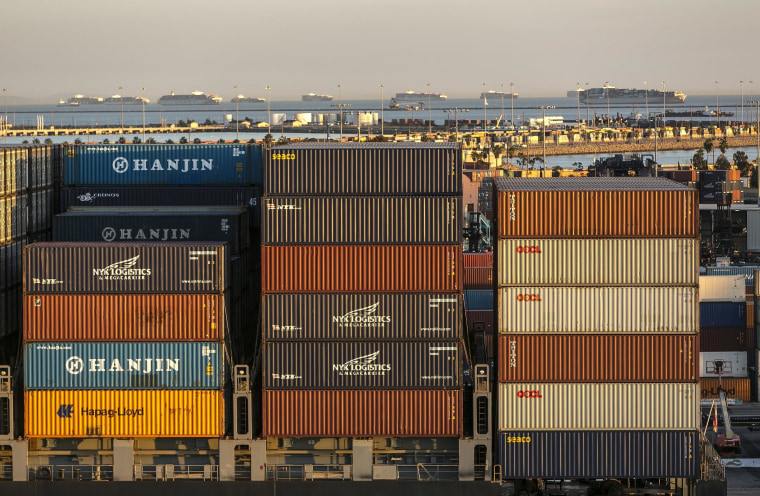In this current era of American politics, it’s rare when President Barack Obama, John Boehner, Mitch McConnell and Nancy Pelosi can all agree on an issue.
That appears to be the case when it comes to giving the president more authority to negotiate trade deals with other nations, making it a rare initiative that could get bipartisan support in the 114th Congress. But it also has its vocal opponents.
In his State of the Union address last month, Obama called for Congress to establish trade promotion authority – or “fast track” approval – on future international trade agreements like the developing Trans-Pacific Partnership with Asian nations.
Such authority forces Congress to do a yes-or-no vote on trade pacts, eliminating the possibility for any congressional revisions once international leaders agree.
“Today, our businesses export more than ever, and exporters tend to pay their workers higher wages. But as we speak, China wants to write the rules for the world's fastest-growing region. That would put our workers and businesses at a disadvantage. Why would we let that happen? We should write those rules. We should level the playing field,” Obama said in his State of the Union. “That's why I'm asking both parties to give me trade promotion authority to protect American workers.”
House Speaker John Boehner wants to give it to him. “I think getting the trade promotion authority for the president that he's asked for is certainly likely,” Boehner said on Fox News last month.
House Minority Leader Nancy Pelosi appears willing too, telling NBC’s Andrea Mitchell that she is “optimistic” the two parties could pass a bill. But in Philadelphia, at the House Democratic caucus retreat, Pelosi told reporters last Wednesday her support depends on how future trade deals would affect American jobs.
"Basically, we want them to have that in their minds when they're negotiating the treaties if they expect us to give them fast track," she said. "I hope to see a path to yes, but the burden is on them to demonstrate that this is good for American paychecks."
And for his part, Senate Majority Leader Mitch McConnell said providing the president “fast track” authority is an ongoing discussion – and something he hopes to act on.
"I’m happy the president has now become a born-again free trader. It’s high time," McConnell said. "He’s only got two years left, and we think this is an area where we can make progress and you can look for us to act on TPA."
But as the establishment leans towards compromise, others – from both the right and left – are vowing to vote no.
Rep. Rosa DeLauro, D-Conn., said in a statement released after the State of the Union that a “fast track” policy would eliminate necessary checks and balances on international trade agreements that could spiral into a race to the bottom for American workers.
“I oppose granting fast track authority, a procedure that is designed to limit public scrutiny, to limit congress’s ability to debate and amend the negotiated text, and gives up Congressional constitutional authority to carefully review the Trans-Pacific Partnership (TPP) and make changes if necessary to protect American workers and consumers,” DeLauro said in the statement.
On the other side of the aisle, Politico reported that Rep. Walter Jones, R-N.C., said he can’t support a policy that would provide even more executive authority to the president.
“For the past six years, the president has ignored Congress, repeatedly abused his executive authority and flaunted the law on Obamacare, amnesty for illegal aliens and many other things,” said Jones. “Given his record, I am astonished that some of my colleagues are so eager to fork over even more of their constitutional authority to the president for him to abuse.”
Discussions to pass “fast track” approval powers come as U.S. trade officials work to finalize the Trans-Pacific Partnership, or TPP, that if agreed upon would connect the United State with 11 countries bordering the Pacific making up 40 percent of the world’s economy. U.S. Trade Representative Michael Froman spoke to the Senate Committee on Finance and the House Committee on Ways and Means last Tuesday, addressing concerns and answering questions.
Skeptical regarding how this will impact the middle class, committee member Sen. Chuck Schumer, D-N.Y., said he will need to be shown how any future trade pacts will build on the failures of past ones – such as the North American Free Trade Agreement, or NAFTA. Schumer said stricter regulation and enforcement of the trade agreement are needed to ensure the middle class is competing on a level playing field against foreign industries.
“I will not support moving this trade agreement forward if we are not fighting to ensure we have the necessary tools to protect the American middle class and American jobs,” Schumer said in a prepared statement during the Senate hearing last Tuesday.
